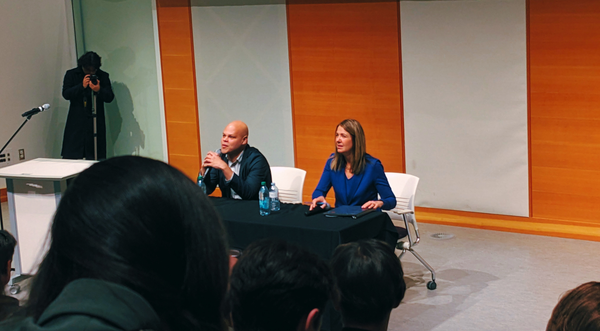HARRIS: Why the “Combatting Hate Act” Threatens Free Expression in Canada
Parliament is back in session, and with it comes yet another piece of legislation wrapped in the language of safety and compassion but carrying the weight of censorship and state overreach. On September 19, 2025, the federal government tabled Bill C-9, formally titled the Combatting Hate Act. It amends the Criminal Code to expand Canada’s hate crime and hate propaganda laws, creating new offences and harsher penalties for those accused of spreading hatred or obstructing access to religious or cultural spaces.
At first glance, the bill might seem noble. Who wouldn’t want to combat hate? But beneath the rhetoric lies a series of deeply troubling provisions that risk undermining Canada’s long-standing protections for free expression, due process, and individual liberty. From a liberty-focused perspective, Bill C-9 is less about protecting people and more about empowering the state to police thought, symbols, and even peaceful dissent.
What the Bill Proposes
Bill C-9 makes several sweeping changes to the Criminal Code, including:
- Repealing the requirement for Attorney General consent before prosecuting hate propaganda offences a key safeguard that ensured a legal check on politically motivated cases.
- Creating a new “symbol offence”: it becomes a crime to willfully promote hatred by displaying symbols associated with listed terrorist entities or Nazi imagery, or anything “resembling” such symbols.
- Introducing a “hate-motivated crime” enhancement: any federal offence found to be motivated by hatred can carry a higher maximum penalty, in some cases up to life imprisonment.
- Criminalizing intimidation or obstruction of access to places of worship or cultural buildings, punishable by up to ten years in prison.
- Defining “hatred” in law as an emotion involving “detestation or vilification” is a significant shift from decades of case-law-based interpretation.
The government claims these changes will help “protect Canadians from hate-motivated crime” and “safeguard access to places of worship.” But as liberty advocates warn, the devil is in the details.
Perhaps the most concerning element of Bill C-9 is its assault on free expression.
By removing the Attorney General’s consent requirement, the government eliminates a crucial safeguard against frivolous or politically driven prosecutions. Under the previous law, a provincial or federal Attorney General had to approve any hate speech charge, ensuring the case met a clear legal standard before it entered the courts. Without that filter, prosecutors or police can now proceed on their own initiative, vastly expanding the risk of selective or ideological enforcement.
The new symbol offence is equally worrisome. It bans the display of any image “principally associated” with a terrorist group or anything that “resembles” banned symbols, language so vague it could ensnare artists, journalists, historians, or even protestors using imagery ironically or critically. While the bill allows exceptions for “legitimate purposes” such as education or art, these defences only apply after a person is charged, meaning citizens must rely on the mercy of prosecutors to avoid ruinous legal battles.
The bill also codifies a definition of “hatred” that broadens the scope of what could be considered criminal. While it clarifies that simply “offending or humiliating” a group isn’t hate, the introduction of a statutory definition could shift interpretive power away from courts and into the hands of legislators and bureaucrats.
As the Canadian Constitution Foundation (CCF) warns, “The broad and vague wording of Bill C-9 risks criminalizing expression that is deeply unpopular but protected under the Charter.”
Another cornerstone of liberty at stake is due process.
Bill C-9 introduces a new “hate-motivated” offence category that dramatically increases penalties for any crime deemed motivated by hatred. If the underlying offence carries a ten-year maximum, for instance, the new hate-motivated version can carry up to fourteen years. If it already carries life imprisonment, the sentence remains life, but the hate label amplifies prosecutorial leverage and social stigma.
This punishment-by-motive standard risks subjective enforcement. It’s notoriously difficult to prove or disprove the emotion behind an action. In practice, it grants prosecutors enormous discretion to frame ordinary offences as hate crimes, even when evidence of hatred is tenuous or speculative.
The bill’s forfeiture provisions also allow the state to seize property “by means of or in relation to which the offence was committed.” This could mean confiscating artwork, posters, or digital materials used in alleged hate-symbol displays, a dangerous precedent for property rights.
Another overlooked danger lies in the new intimidation and obstruction provisions. These make it a serious crime punishable by up to ten years in prison to “intentionally obstruct or interfere” with access to any building used for religious worship or cultural activities.
While the intent may be to protect communities from harassment, the language is alarmingly broad. Civil-liberties groups like the Canadian Civil Liberties Association (CCLA) have warned that this could criminalize peaceful protests, pickets, or leafleting near religious or cultural institutions. Even approaching such a building to “communicate information” could be construed as interference if authorities deem it disruptive.
In other words, a law ostensibly written to prevent hate crimes could end up being used against peaceful activists, journalists, or community organizers, particularly those whose causes fall out of political favour.
From a liberty-focused perspective, the gravest problem with Bill C-9 isn’t just its text, it’s the precedent it sets. Every time the state expands its authority in the name of public safety or tolerance, it rarely gives that power back.
The criminal law should exist to prevent and punish acts of violence, coercion, or direct harm, not to police symbols, opinions, or perceived emotions. By criminalizing expression and motive, the government risks turning the justice system into a tool for ideological control.
Canada already possesses robust laws against threats, harassment, and violence. We do not need vague, sweeping hate-crime legislation that gives prosecutors and politicians the power to decide which symbols or sentiments are acceptable.
As the CCF and other defenders of civil liberty have emphasized, freedom of expression means nothing if it only protects the popular. True liberty protects even speech that offends, disturbs, or challenges prevailing orthodoxy.
Bill C-9, despite its well-intentioned title, represents a dangerous step toward censorship and centralization. Canadians who value liberty, free inquiry, and the rule of law must remain vigilant because once the state begins to decide which ideas are too hateful to speak, the right to speak freely at all soon disappears.
The views expressed in this piece are those of the author and do not necessarily reflect the editorial position of The Provincial Times or Left Lane Media Group. Read our Content Policy here.





